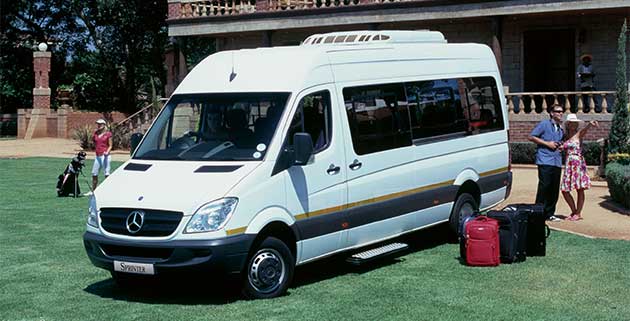Passenger Liability Replacement
Tourism Tattler readers may be aware that the Constitutional Court found the amendments to the Road Accident Fund Act to be constitutional. As a result, Passenger Liability insurance is no longer an effective risk transfer solution for Tour Operators on South Africa’s roads. So, what other products are available to protect international tourist passengers? By Gavin Courtenay.
Because the Constitutional Court ruling effectively takes away the accident victim’s common law right to claim against the wrongdoer (i.e. the negligent driver or his employer), road accident victims can only pursue their claims against the Road Accident Fund (RAF).
The legislation which amended the RAF Act was widely criticized for various reasons, one being that an accident victim’s claims are limited (or capped) in various respects. In this regard an accident victim can only claim damages for pain and suffering in certain circumstances. The amount a victim can claim for a loss of earning capacity is also limited (or capped). The effect of this is that foreign tourists who are injured in motor vehicle accidents in South Africa may well not recover adequate compensation.
It is important to bear in mind that the RAF legislation changes are only applicable to motor vehicle accidents that occur in South Africa. So operators who are based in South Africa and operate outside of South Africa need to be aware that other Southern African countries generally do not have such restricted legislation in place and accident victims can generally claim meaningful compensation from the wrongdoer or his employer making it vital that Passenger Liability cover be kept in place for vehicles travelling outside the RSA.
It is also important to note that the new RAF legislation only applies to legal action following a motor vehicle accident. The right to sue the wrongdoer following injury from any other incidents outside of the motor vehicle still stands in South Africa. So the need for General Public Liability is essential.
Liability insurance is as important as ever
Another unfortunate reality is that it can literally take years for a personal injury claim to be finalised before our courts. Although this is not necessarily different in other countries, it has the effect that accident victims are often left to fend for themselves for long periods of time and can be subjected to immense hardship during this period. Moreover these victims have no guarantees that they will ultimately be successful in recovering any money or damages after the legal process has run its course.
Risks
International agents may well think twice about recommending South Africa as a tourist destination. As South Africa’s core inbound markets emanate from European Union countries who are all subject to compliance with the E.C. Directive on Travel and Trade Act, the Agents will find themselves even more exposed to risk. If an injured guests damages cannot be recovered against the local operator, their client will no doubt seek to hold them responsible in terms of said directive. Clearly, it is in every Tour Operators interest to show international agents as well as guests / tourists that they are taking some form of responsibility.
Solution
After a liability product, the most appropriate insurance that will make payment following an accident that results in injury is a personal accident policy. It is a very simple cover with a capital benefit or sum insured, which will be paid in full following death or injury, and paid in terms of a sliding scale based on severity of injury in the case of permanent disablement. There is also medical costs insurance cover that is included to be used to cover such costs resulting from the accident.
One of the main differences between a personal accident product and a liability product is the fact that the personal accident product is on a no fault basis, which means that it will make payment to an injured person regardless of fault. By comparison, a liability product will only make payment to an injured person where there is proven legally liability as a result of negligence on the part of the insured operator that resulted in injuries to said person. So logically the personal accident policy will be more costly as it will pay regardless of fault on behalf of the operator.
Example
A classic example of this difference would be a situation where an insured operator with six guests in their vehicle is hit by a third party vehicle and three of the guests are killed. The cause of the accident had nothing to do with the insured operators actions, the third party vehicle was at fault. With a liability product nothing would be paid as there was no fault on behalf of the insured, likewise a legal action against the operator would not have been successful for the same reason. In this same situation a personal accident product would pay out in terms of the three dead individuals, despite the fact that there was no fault by the insured.
About the Author. Gavin Courtenay is the Managing Director of SATIB Insurance Brokers, a registered financial services provider with offices through South Africa and in Botswana, Mozambique, Namibia, Zambia and Zimbabwe. For more information, visit www.satib.com





